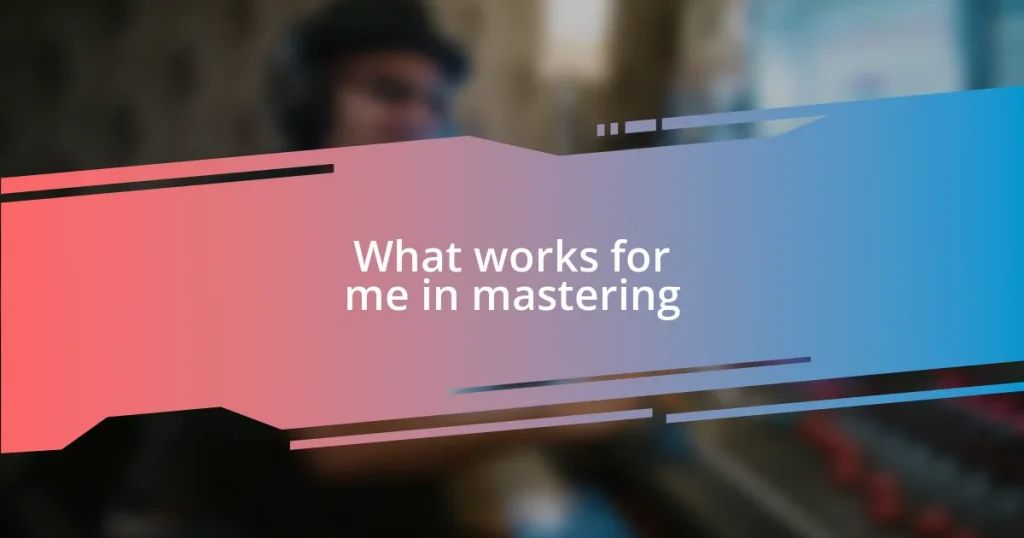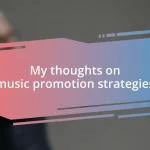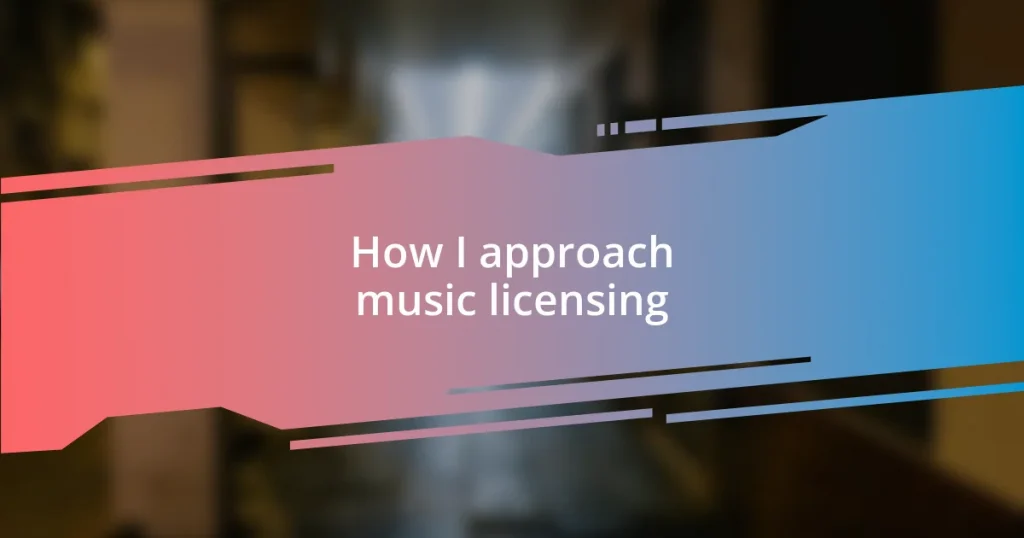Key takeaways:
- Identifying personal learning styles enhances retention and understanding, highlighting how environment and format influence absorption of information.
- Setting clear, specific mastery goals and tracking progress fosters motivation and accountability, turning vague aspirations into achievable objectives.
- Embracing resilience and the power of feedback promotes growth, enabling learners to adapt strategies and overcome challenges for better mastery.
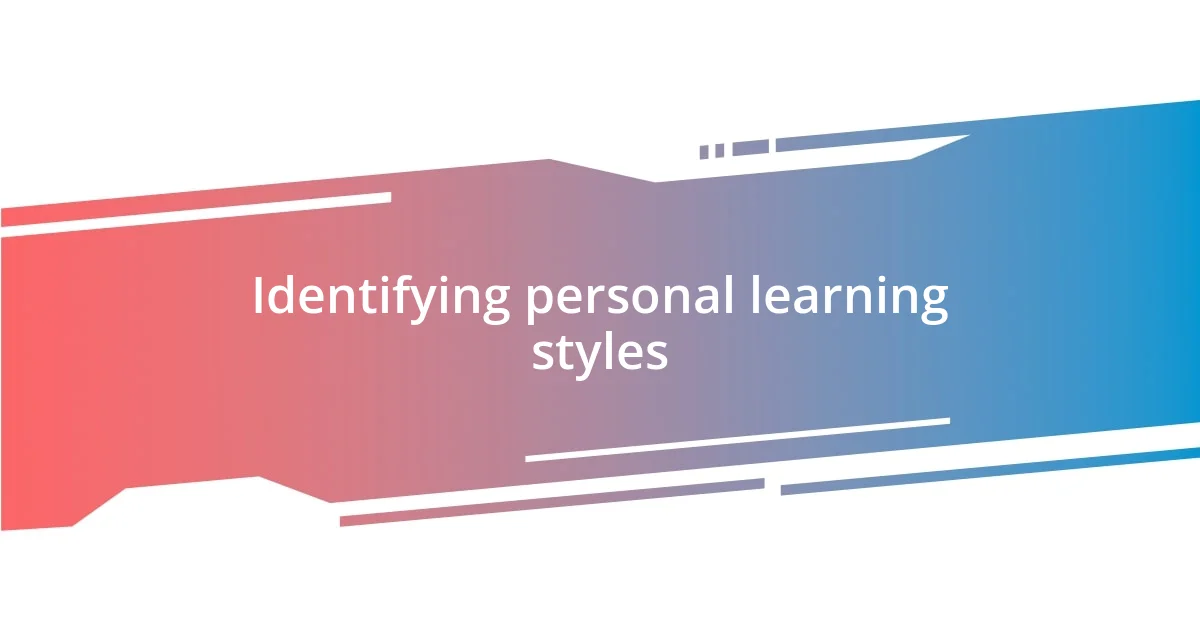
Identifying personal learning styles
Identifying your personal learning style is like finding the key to unlocking your potential. For example, I’ve always gravitated toward visual aids – when I first started learning a new language, colorful flashcards helped me associate words with images. It’s fascinating how something as simple as changing the format of information can enhance understanding and retention.
Have you ever noticed how your mood affects how you learn? I once confronted a challenging math concept while listening to upbeat music. Surprisingly, the music made abstract numbers feel more approachable; I was more engaged! This experience taught me that sometimes, our environment plays a crucial role in how we absorb new information.
While some prefer hands-on experiences, others thrive on discussions and lectures. Personally, I’ve found that group study sessions work wonders for me. I remember preparing for an important exam, and just talking through the material with friends made complex topics feel manageable. It’s all about discovering what resonates with you and embracing those unique approaches. What works for you?
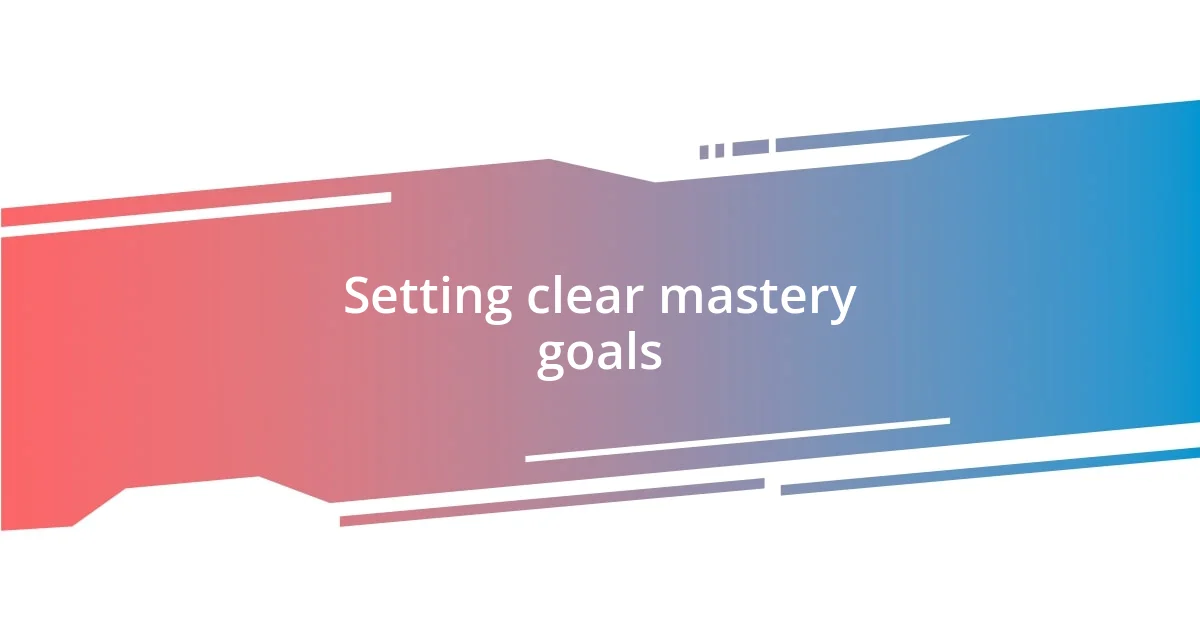
Setting clear mastery goals
Setting clear mastery goals is fundamental in my journey toward mastering new skills. When I first set a goal to learn guitar, I didn’t just want to strum a few chords; I aimed to play my favorite songs fluently. Breaking down that overarching goal into smaller, actionable steps, like practicing for 30 minutes daily and learning one new song each week, made the task less overwhelming and more achievable. Have you ever thought about how specific your goals really are? The clearer your objectives, the easier it becomes to navigate your path to mastery.
As I reflect on my own experiences, I remember setting a milestone for my public speaking. I distinctly recall the rush of excitement mixed with nerves as I prepared to give a presentation. I didn’t just want to speak—I wanted to connect with my audience. Therefore, my goal became to present in front of a live audience at least once a month, which pushed me outside my comfort zone. Each time, I evaluated what worked and what didn’t, refining my approach. It’s this iterative process that truly sharpens your skills.
In my opinion, writing down your goals is more than organizational; it’s a commitment. I’ve always kept a visual progress chart at my workspace, marking each goal I achieved. There’s something incredibly rewarding about seeing your progress documented. The act of writing them down makes them tangible, turning vague aspirations into concrete objectives. How do you keep track of your mastery goals? I believe finding a system that resonates with your style is essential for maintaining focus and motivation.
| Goal Setting Strategy | Description |
|---|---|
| Specificity | Clearly define what you want to achieve to create a focused approach. |
| Measurable Milestones | Break down your goals into smaller, attainable steps for easier tracking. |
| Visual Progress Tracking | Use charts or lists to visualize achievements and keep up motivation. |
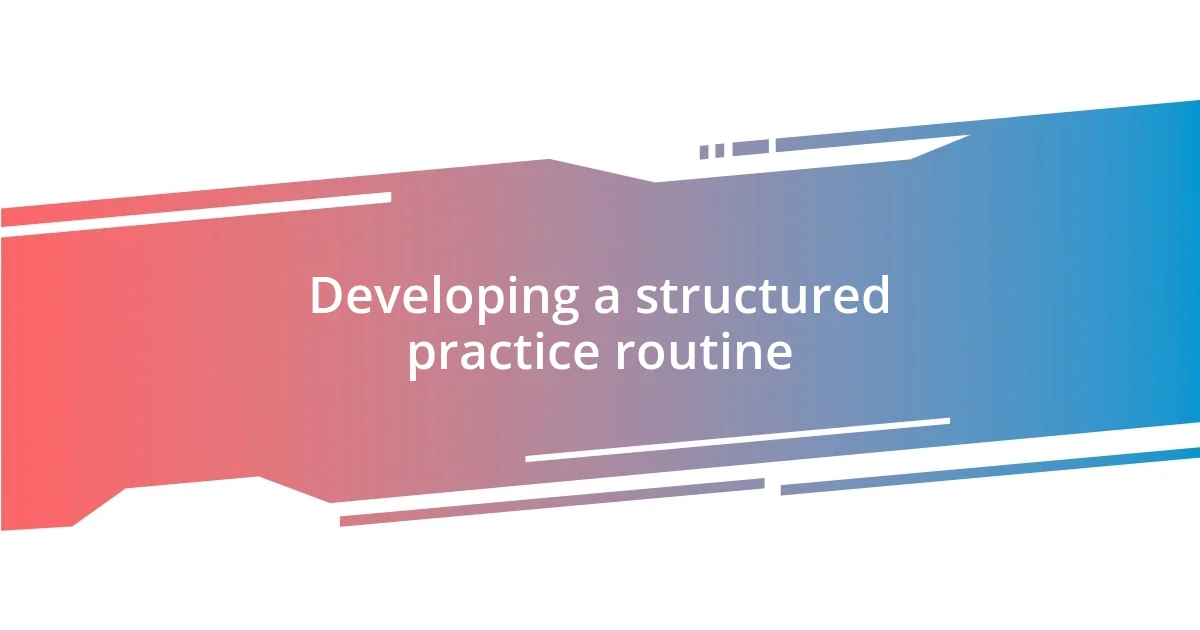
Developing a structured practice routine

Developing a structured practice routine
Creating a structured practice routine has transformed my learning experience. When I first approached piano, chaotic sessions left me feeling frustrated. It wasn’t until I allocated specific time slots and stuck to them that I genuinely noticed progress. I started blocking off an hour each day, mixing technical exercises with learning my favorite pieces. That structure instilled a sense of discipline, making the time spent more productive and enjoyable.
One important aspect of my routine is reflection. After each session, I take a few moments to jot down what I accomplished and what I want to focus on next time. This practice not only reinforces my learning but also carries a sense of ownership over my progress. Sharing this routine with fellow learners opened up discussions about accountability. Many found it beneficial to find a buddy and practice together; it made the journey less lonely and more inspiring. I truly believe a structured routine can be the bedrock of growth in any skill.
Here’s what I suggest for developing your own practice routine:
– Set Specific Times: Consistency is key; choose specific days and times for your practice.
– Mix It Up: Incorporate different activities like drills and song practice to keep it engaging.
– Set Short-Term Goals: Focus on what you want to achieve in each session to maintain motivation.
– Review and Reflect: Spend a few minutes after each practice to evaluate your progress and set intentions for next time.
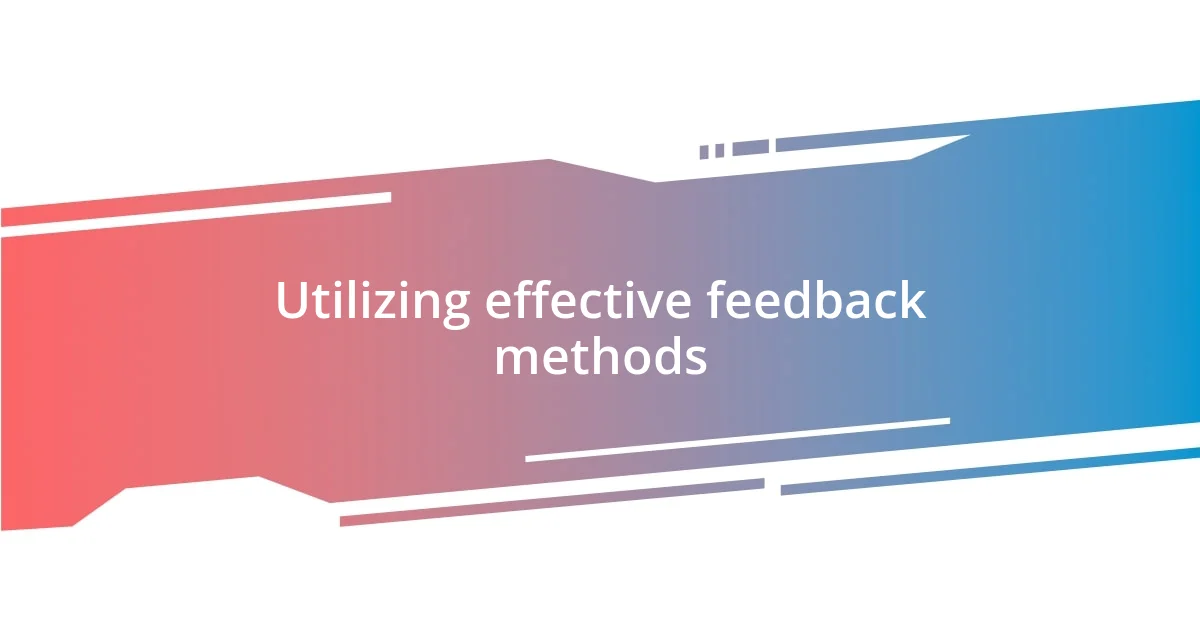
Utilizing effective feedback methods
Providing effective feedback has played a crucial role in my mastery journey. I remember attending a workshop where we practiced giving and receiving feedback in small groups. I was initially hesitant, fearing my comments might hurt someone’s feelings. However, I discovered that constructive feedback can be a powerful tool for growth, both for the giver and receiver. Have you ever received feedback that completely reshaped your approach? I certainly have, and it opened my eyes to areas I hadn’t noticed before.
One insightful method I use is the “sandwich” technique. When offering feedback, I start with a positive observation, follow with constructive criticism, and then end with encouragement. This approach keeps the atmosphere supportive. For instance, after a friend performed a song at an open mic, I complimented her engaging stage presence, suggested a few tweaks to her timing, and then ended by saying how much I look forward to her next performance. It’s remarkable how something as simple as phrasing can make feedback feel less daunting and more motivational.
Additionally, seeking feedback from diverse sources has enriched my learning experience. Whether it’s joining a group of fellow learners or connecting with a mentor, I’ve found that different perspectives unveil new insights. Just the other week, I participated in a peer review session where a colleague pointed out aspects of my presentation style I hadn’t considered. This kind of dialogue not only improves our skills but fosters a fantastic sense of community. So, have you thought about who might provide you with valuable feedback? Expanding your network could be exactly what you need to push your mastery to the next level.
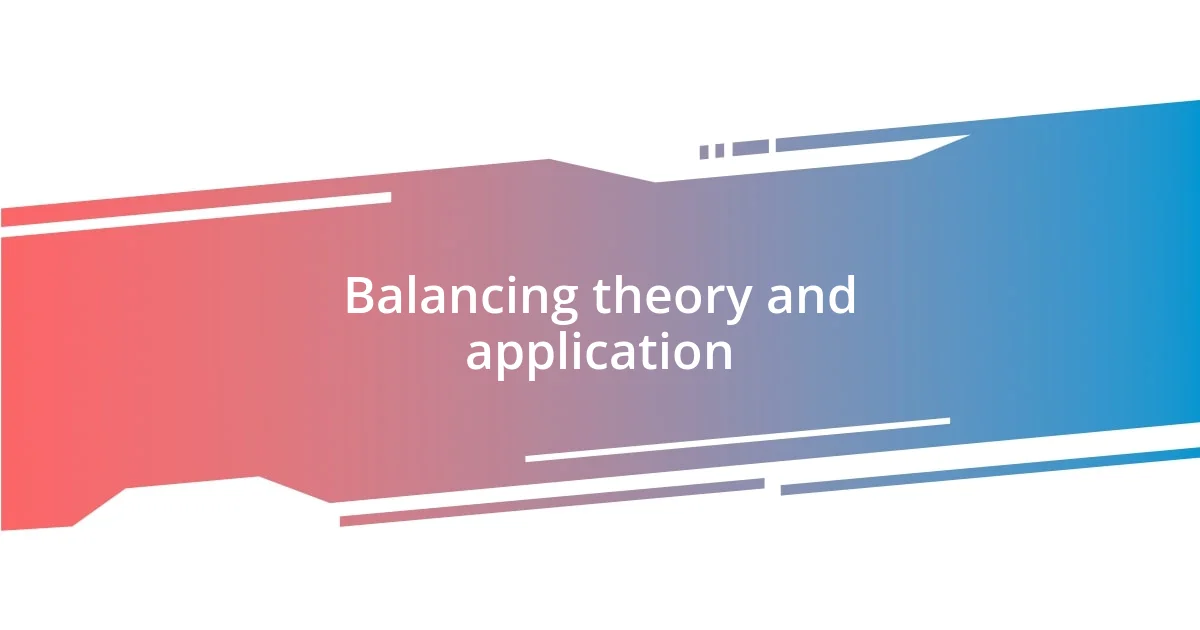
Balancing theory and application
Balancing theory and application is essential, yet often challenging. In my early days of learning, I was bogged down by countless theories and techniques. I remember pouring over books and videos, feeling overwhelmed by all the information, yet struggling to apply any of it in a meaningful way. It was only when I started to take one concept at a time and applied it practically that I began to see real growth. Have you ever felt stuck in the theory without making progress? I certainly have, and shifting my focus to hands-on practice made all the difference.
As I dove deeper into the nuances of mastering a skill, I learned how vital it is to connect theoretical knowledge to real-life scenarios. For instance, while studying music theory, I took a specific chord progression and challenged myself to create a piece using it. The theory felt much more alive when I could hear it in action. I vividly recall that moment when a melody emerged that I was proud to share with others. It’s exhilarating to witness theory manifest into something tangible—like turning a puzzle’s pieces into a completed picture.
Ultimately, I’ve discovered that a balance is not about favoring one over the other but rather creating a dialogue between them. When I hit a bump in my learning, I go back to the theory to troubleshoot my application struggles. I remember a time when I couldn’t seem to perfect a specific piece. Instead of just practicing endlessly, I revisited the theoretical underpinnings of the music. Understanding the structure and intention behind it brought clarity and bolstered my confidence. How do you ensure that your theoretical grounding translates into practical expertise? Finding that harmony has been my key to mastering any skill.
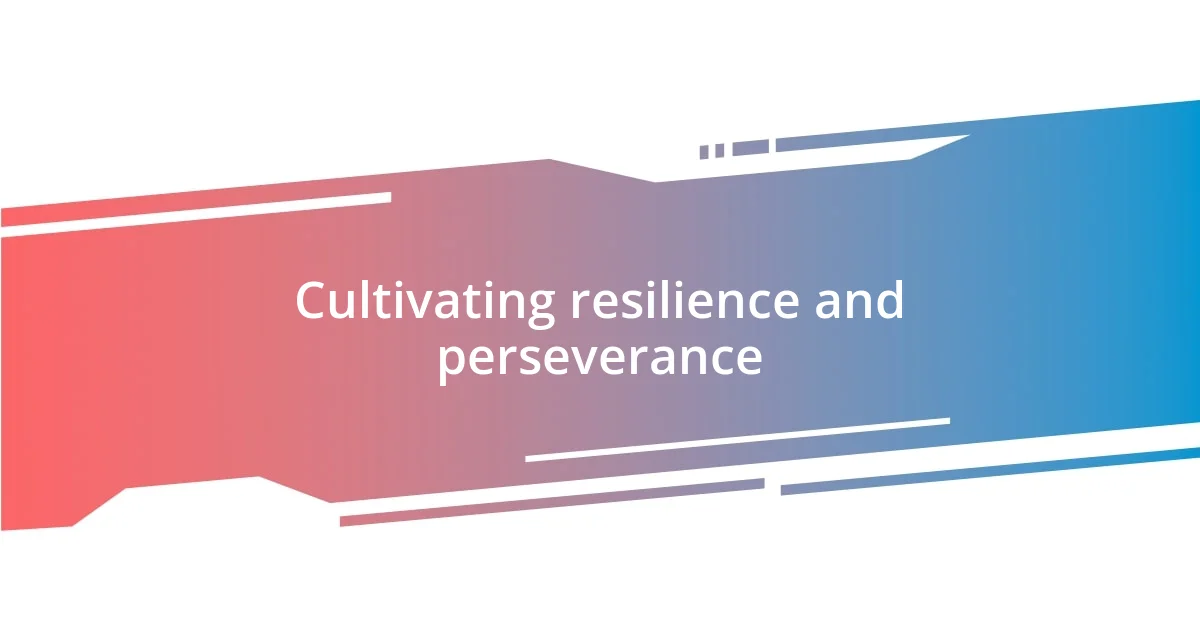
Cultivating resilience and perseverance
Cultivating resilience and perseverance has been a defining part of my journey. There were times when I faced setbacks, like the moment I failed to meet a personal goal. It felt disheartening, but instead of giving up, I learned to view these challenges as opportunities for growth. Have you ever faced a situation that tested your resolve? In those moments, I found that reflecting on what I could learn helped me bounce back stronger.
One experience that stands out is when I took on a large project at work. Despite numerous obstacles, I realized that embracing discomfort was crucial. Each hurdle became a lesson, teaching me to adapt and reassess. I remember feeling frustrated when things didn’t go as planned, yet that feeling transformed into determination. It’s almost like a muscle; the more we stretch it through challenges, the stronger we become. I ask myself, how can we harness our failures into lessons rather than reasons to quit?
Over time, I’ve discovered that surrounding myself with supportive people bolsters my resilience. During tough times, I’ve reached out to friends and mentors, sharing my struggles. Their encouragement often reignites my motivation, reminding me that I’m not alone in this journey. I recall a late-night conversation with a friend who reminded me of my past achievements, which reignited my hope. So, who in your life helps you build resilience? Finding your “cheerleaders” can make all the difference when embracing the ups and downs of mastering anything new.
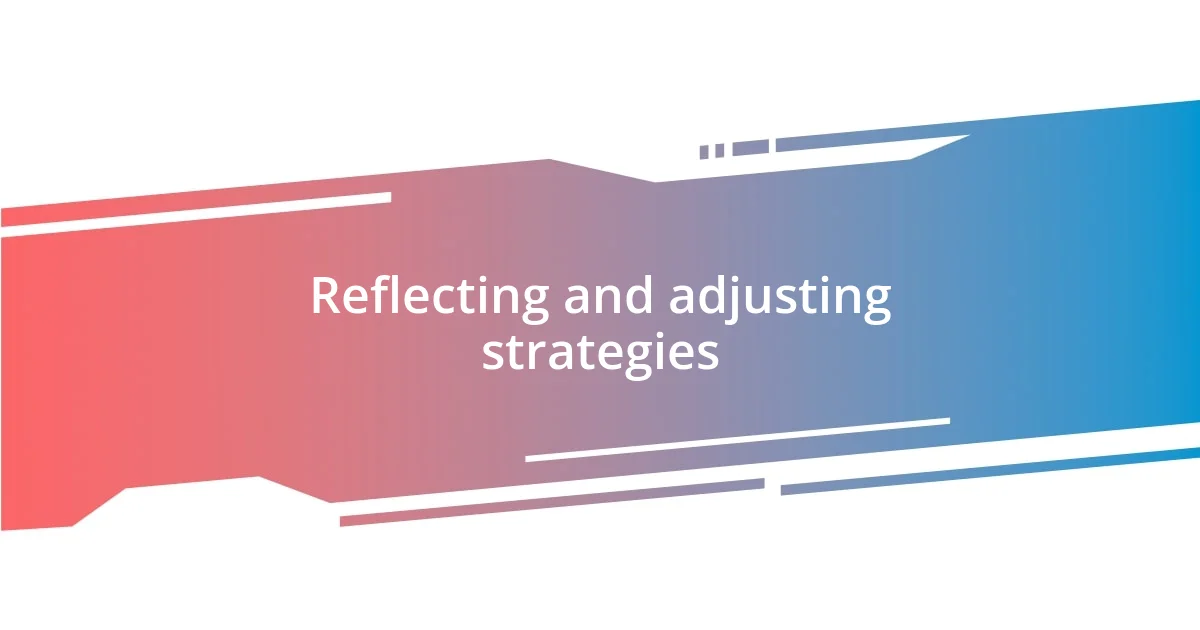
Reflecting and adjusting strategies
Reflecting on my learning strategies has often led me to surprising realizations. One afternoon, while reviewing my progress in a language class, I noticed that I was stuck on certain vocabulary. Instead of just pushing through, I took a moment to ask myself why this was happening. Have you ever paused to evaluate your methods? I switched my approach by incorporating more visual aids and engaging with native speakers. That small adjustment opened up a whole new world of understanding for me.
When I consider adjusting my strategies, I draw from my experience taking an online course. Initially, I was overwhelmed by the pace and the volume of materials. After some reflection, I decided to chunk my learning into smaller segments and set specific goals each week. This change not only improved my grasp of the content but also made it far less overwhelming. It’s fascinating how such a simple tweak can revitalize your motivation. Have you tried breaking down your goals? It might just be the key to fostering a more enjoyable learning experience.
Another crucial lesson I’ve learned is the power of feedback, both from myself and others. I recall sharing a writing project with a trusted friend, and their insights helped me see beyond my perspective. Reflecting on their feedback prompted me to adjust my writing style significantly. I began to embrace constructive criticism as a tool for growth rather than a source of discouragement. How do you approach feedback in your learning journey? A willingness to adapt based on new insights can often lead to breakthroughs that enhance your mastery.










